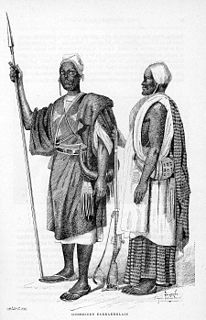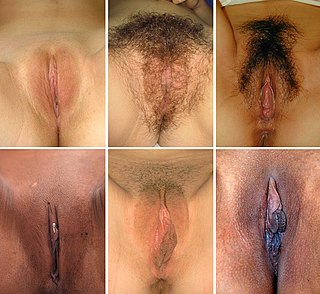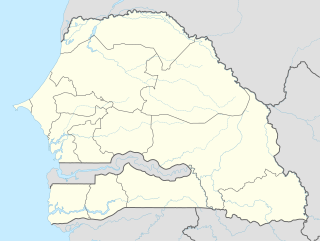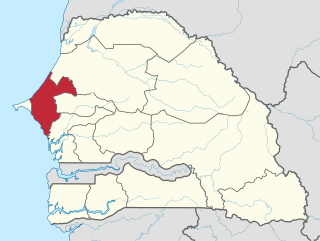
Female genital mutilation (FGM), also known as female genital cutting and female circumcision, is the ritual cutting or removal of some or all of the external female genitalia. The practice is found in Africa, Asia and the Middle East, and within communities from countries in which FGM is common. UNICEF estimated in 2016 that 200 million women living today in 30 countries—27 African countries, Indonesia, Iraqi Kurdistan and Yemen—have undergone the procedures.

The Mandinka or Malinke are a West African ethnic group with an estimated global population of 32 million. The Mandinka are one ethnic group within the larger linguistic family of the Mandé peoples, who account for more than 87 million people.

The Soninke are a West African ethnic group found in eastern Senegal and its capital Dakar, northwestern Mali and Foute Djalon in Guinea, and southern Mauritania. They speak the Soninke language, also called Maraka language, which is one of the Mande languages.

Molly Melching is the founder and Creative Director of Tostan, a non-governmental organization (NGO) headquartered in Dakar, Senegal whose mission it is to empower African communities to bring about sustainable development and positive social transformation based on respect of human rights. Tostan and Melching have gained international notice for their work with partner communities to encourage the abandonment of female genital cutting and child/forced marriage in Senegal, and other countries across West and East Africa.

Moolaadé is a 2004 film by the Senegalese writer and director Ousmane Sembène. It addresses the subject of female genital mutilation, a common practice in a number of African countries, from Egypt to Nigeria. The film was a co-production between companies from several Francophone nations: Senegal, France, Burkina Faso, Cameroon, Morocco, and Tunisia. It was filmed in the remote village of Djerrisso, Burkina Faso. The film argues strongly against the practice, depicting a village woman, Collé, who uses moolaadé to protect a group of girls. She is opposed by the villagers who believe in the necessity of female genital cutting, which they call "purification".

Peanut stew or groundnut stew, called maafe, sauce d'arachide (French), tigadèguèna, or domoda, is a stew or sauce is a dish common to much of West Africa. It is a staple food in Western Africa. It originates from the Mandinka and Bambara people of Mali. Variants of the dish appear in the cuisine of nations throughout West Africa and Central Africa. It is very similar to groundnut soup. It may have a thicker consistency. Made from lamb, beef, chicken, or without meat, maafe is cooked with a sauce based on groundnuts, especially peanut butter/paste, and tomatoes. Peanut paste is sometimes used as an ingredient. Groundnut stew is sometimes prepared with the addition of meat, such as chicken, and vegetables. In Ghana, groundnut stew is often accompanied with fufu.
The Inter-African Committee on Traditional Practices Affecting the Health of Women and Children (IAC) is a non-governmental organization (NGO) which seeks to change social values and raise consciousness towards eliminating female genital mutilation (FGM) and other traditional practices which affect the health of women and children in Africa.
International Day of Zero Tolerance for Female Genital Mutilation is a United Nations-sponsored annual awareness day that takes place on February 6 as part of the UN's efforts to eradicate female genital mutilation. It was first introduced in 2003.

There is a widespread view among practitioners of female genital mutilation (FGM) that it is a religious requirement, although prevalence rates often vary according to geography and ethnic group. There is an ongoing debate about the extent to which the practice's continuation is influenced by custom, social pressure, lack of health-care information, and the position of women in society. The procedures confer no health benefits and can lead to serious health problems.

The vulva consists of the external female sex organs. The vulva includes the mons pubis, labia majora, labia minora, clitoris, vestibular bulbs, vulval vestibule, urinary meatus, the vaginal opening, and Bartholin's and Skene's vestibular glands. The urinary meatus is also included as it opens into the vulval vestibule. Other features of the vulva include the pudendal cleft, sebaceous glands, the urogenital triangle, and pubic hair. The vulva includes the entrance to the vagina, which leads to the uterus, and provides a double layer of protection for this by the folds of the outer and inner labia. Pelvic floor muscles support the structures of the vulva. Other muscles of the urogenital triangle also give support.

Female genital mutilation (FGM), also known as female genital cutting (FGC), is practised in 30 countries in western, eastern, and north-eastern Africa, in parts of the Middle East and Asia, and within some immigrant communities in Europe, North America and Australia. The WHO defines the practice as "all procedures that involve partial or total removal of the external female genitalia, or other injury to the female genital organs for non-medical reasons."
Fandène is a small village in Senegal about 7 km from Thiès. It is inhabited by the Serer people.

Diabougou is a village in the Thiès Region of western Senegal. The village was the site of the "Diagoubou Declaration". This was the first multilateral announcement to renounce the practice of female genital cutting in Senegal.

Demba Diawara is an imam and village leader of Keur Simbara in Senegal. He is known for his leadership in encouraging village communities to abandon the tradition of female genital cutting. He knew of the first declarations at the Senegalse village of Malicounda Bambara to abandon FGC in 1997 and he led his village and many more to the first multilateral announcement at Diabougou in 1998.














